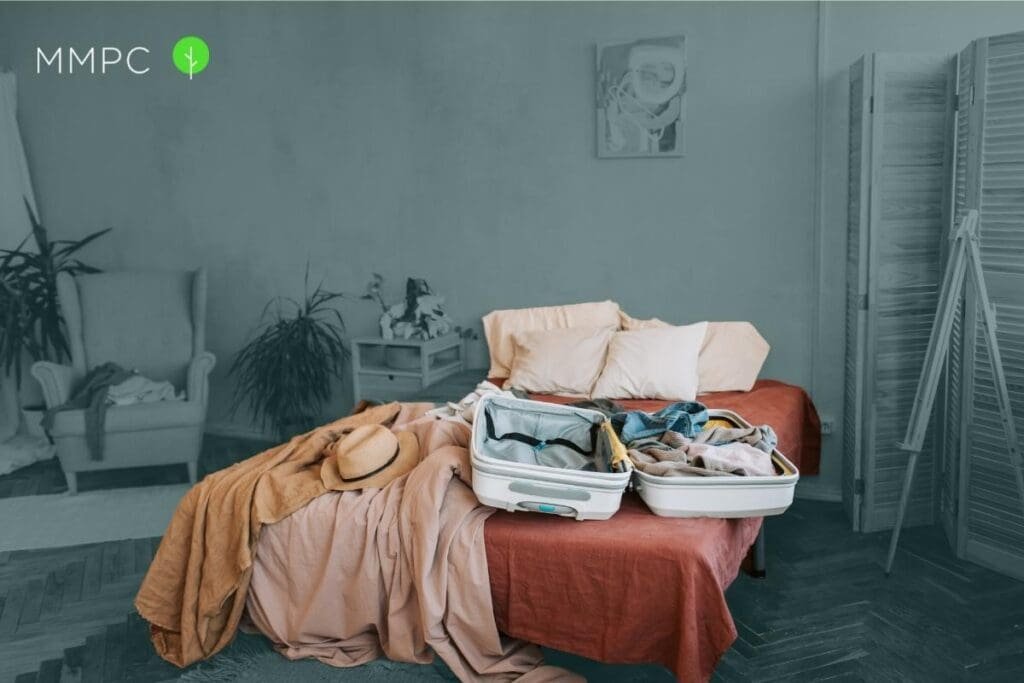
It’s a common misconception that bed bugs are attracted to dirty, unkempt homes. In reality, these pests can be found in both clean and dirty places. Rather than crawling in on their own, bed bugs typically get into people’s homes by hitchhiking in bags, clothing, and luggage.
How Bed Bugs Spread to People’s Homes
Bed bugs travel both short and long distances to live near their sole source of food, blood. They may inadvertently enter your home, regardless of how clean and well-maintained it is. They do this in one of two ways:
- Passive Dispersal – This is when bed bugs are transported long distances from one infested location (such as a home, hotel, school, or store) to a new location after climbing onto clothing, bags, furniture, and other items.
- Active Dispersal – This often occurs between neighboring apartments. Bed bugs can enter your space from an infested adjacent unit through outlets, vents, and gaps in the wall.
What Attracts Bed Bugs
Bed bugs have evolved to use various visual, olfactory, and thermal cues to help them find their next blood meal. They strategically bite their targets at night, when humans are most inactive. They are most active between 12am and 5am, right when we’re in the midst of deep sleep.
Here’s what’s attracting bed bugs to bite you at night:
- Carbon Dioxide – We produce more carbon dioxide while we sleep. Bed bugs follow the gradient of carbon dioxide concentration in the air to lead them to us.
- Heat – Bed bugs use sensory structures on their antennae to detect body heat.
- Body Odor – Bed bugs are also attracted to the various odor molecules produced by our bodies. Body odor is also why bed bugs are twice as more likely to be attracted to dirty laundry than to clean laundry.
Do Bed Bugs Prefer Certain Blood Types?
If you find yourself covered in bed bug bites, while your family members or roommates are fine, it might be because the bed bugs prefer the taste of your blood.
Bed bugs prefer blood groups that they are accustomed to. For example, if a bed bug grew up drinking A- blood, they may develop a slight preference towards A- blood.
That being said, a bed bug will happily feed on any blood type it has access to, even if the preferred blood group is not available.
Interestingly, research suggests that bed bugs don’t like blood that’s been contaminated with alcohol. Heavy drinkers might be less likely to have a bunch of bites.
Need Help with Bed Bugs?
If you are struggling with bed bugs, MMPC is here to help. We are one of New York City’s highest-rated pest control companies, and we provide several effective and eco-friendly bed bug services:
- NESDCA-Certified Canine Bed Bug Inspections
- Bed Bug Cryonite & ULV Treatment
- Bed Bug Ambient Heat Treatment
- Customized Bed Bug Treatment & Prevention Programs
Give us a call at (212) 219-8218 or contact us to speak to one of our bed bug experts today!
